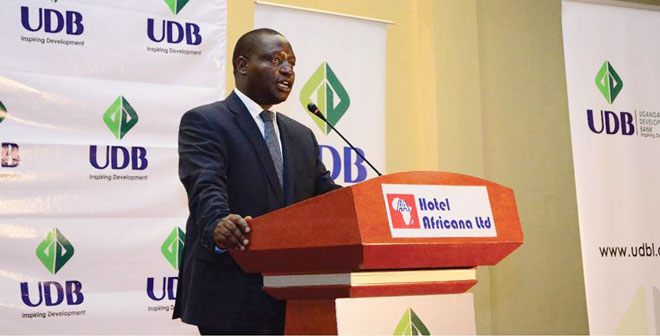
“We have a strategic plan and we are working within the National Development Plan through priority sectors like value addition and primary agriculture. We are looking at activities like milk production.”
But some experts like Musa Lwanga, a research economist at Economic Policy Research Centre (EPRC), says UDB should not look at the government as the only source of financing.
“Look at African Development Bank; it is not just financed by African countries but by European partners and others from the US.
“A development bank should be run on business principles also. There should be a level of business orientation because it is a driver of growth,” he says.
Lwanga says that if the government is the only financier of a development bank, it may lead to political capture which is a slow way of killing the bank.
Lwanga adds that the slow pace of filling up UDB’s coffers portends bad news for the economy.
“The incentives of the private sector failed to align with those of the country’s development needs. The private banks have remained focused on short term loans, they remain skeptical about lending long term because of the risks,” he says.
He says the current high interest rates should be the motivation for a strong development bank as an alternative; especially in long term financing for agriculture and industry.
Another expert, Isaac Nkote who is a senior economics lecturer at Makerere University Business School (MUBS) in Kampala, says the more urgent question about UDB should be whether there is actually demand for long term financing.
Nkote says development banks are the key for growth and describes how some countries even have specific ones; an industrial bank, an agricultural bank and more while others, like Uganda, have one all-embracing development bank
You cannot finance long term needs with short terms loans, he says but a survey is needed to establish whether there is demand for the much talked about development financing.
“Does UDB, for instance, have more loan applications than they can give out? Are they oversubscribed? If their demand is Shs700billion and they only have 300billion, that would be an issue,” he says.
Nkote says some people may be worried about UDB when in actual sense, nobody is demanding for long-term loans.
UDB offers a wide array of loans; short term, mid-term, long term, and trade finance and equity investment. On its long term loan portfolio, UDB states its purpose “Provision of long-term loans to finance acquisition, construction, expansion, modernization and installation of fixed assets.”
The bank is also meant to support infrastructural development, industrialization among other sectors.
With the money UDB has received since the talk of recapitalization started, the bank’s purpose looks out of sync. With this slow injection of capital, the bank’s role in growth and development has come into focus.
Although the current consensus is that UDB should fill gaps left by private financial institutions, which are often geared towards commercial activities, former president of the African Development Bank, Donald Kaberuka, says development banks should be managed on private sector basis.
“They should not respond to market failures. If a government wants to achieve certain objectives with development banks, the Treasury should pay for it,” he said at a meeting of regional central bank governors last year to mark Bank of Uganda’s 50 years.
A year later, the debate rages as the unavailability of capital remains a key challenge for UDB.
****
 The Independent Uganda: You get the Truth we Pay the Price
The Independent Uganda: You get the Truth we Pay the Price



